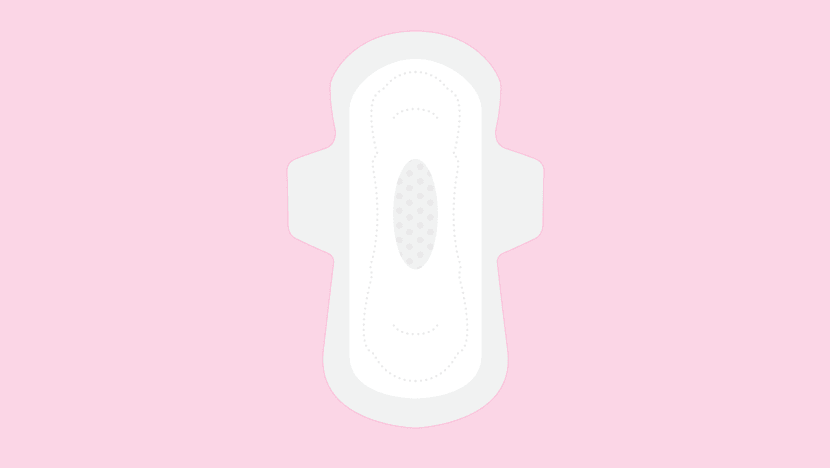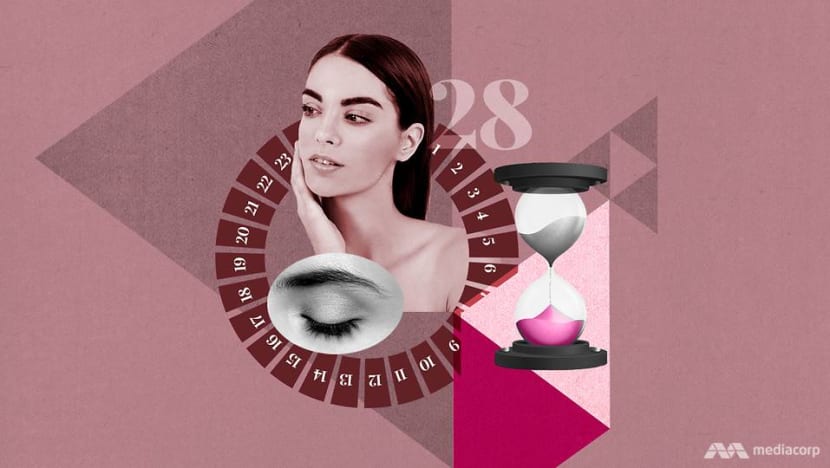More women diagnosed with endometriosis amid greater awareness of the impact of severe period pain

Ms Stefanie Lim, 30, underwent surgery for endometriosis, a condition where lining typically found in the uterus grows outside of it. (Photo: Stefanie Lim)
SINGAPORE: For about three years, Ms Stefanie Lim would feel such intense pain before, during and after her period that she would often have to take strong painkillers typically prescribed for those recovering from surgery.
At its worst, she would not be able to function and would take medical leave from her job as an account manager and “sleep it off”, the 30-year-old told CNA. Sometimes, she would have to run to the toilet as her bowels would be “triggered".
She visited at least 10 doctors, including specialists, hoping to get to the root of the problem. Each time, painkillers were prescribed, she said.
“Finally I actually met a general practitioner, not even a specialist but a GP who took me seriously and then she was the first one who told me what endometriosis was because she suspected that,” Ms Lim said.
“I was like what? What is that? Can you spell it? I have never heard of that at all.”
Commentary: Period pain may need attention but seen as normal or something to put up with
A further check at the National University Hospital (NUH) confirmed that Ms Lim was suffering from endometriosis, a condition where cells from the lining of the womb are present in an “abnormal” location.
“If these cells are present in the abnormal location, they will also respond to hormones, and they will bleed and cause various disease, for example, a cyst or nodules,” said Dr Ma Li, associate consultant at NUH's Division of Benign Gynaecology Department of Obstetrics & Gynaecology.
These locations include the bowels, the ovaries and fallopian tubes, she said.
After having surgery to excise the endometriosis in December last year, Ms Lim said she has not had pain related to her period. She is on long-term hormone medication.
“Endometriosis is an estrogen-dependent disease. So even after surgery removal, it is recommended to take hormonal medication to prevent a recurrence," Dr Ma Li explained. "Patients not on any hormonal medication increase the risk of recurrence for endometriosis."
MORE DIAGNOSED WITH ENDOMETRIOSIS
There has been a rising trend in the number of people diagnosed with the condition.
From 70 to 80 patients a month in 2019, an endometriosis clinic at NUH has been seeing 100 to 110 patients per month so far this year, with more than half being severe cases, said Dr Ma Li.
The clinic, which was set up in 2015, sees patients as young as 12 years old.
There were also more cases at the Astra Laparoscopic & Robotic Centre For Women and Fertility Clinic. Associate Professor Fong Yoke Fai sees 10 to 20 patients with endometriosis weekly, double the number he saw about eight years ago.
Assoc Prof Fong said this could be due to an increase in awareness of the condition among younger women, as well as improved diagnosis with better and more available tools. It could also be a result of fewer women having children or having them at a later age.
"It is well known that both pregnancy and breastfeeding are protective against endometriosis ... Women in our society are not only marrying and embarking on pregnancies later, but are also having fewer children as well," he said.
"It may well be this factor that contributes the most significantly to the increased incidence of endometriosis in our modern population."
Is heavy menstrual bleeding normal? And what does eating pineapple have to do with it?
When menstrual cramps affect a woman's quality of life, or when she needs to take medical leave to ride out the cycle, it is a sign that she could have endometriosis, said Dr Ma Li.
Symptoms include heavy menstrual bleeding marked by having to change more than five to six sanitary pads per day.
“If the pain is worsening by each month, and duration of the pain is getting longer and longer, or if the patient has other pain, for example, pain with passing motion, pain in passing urine or pain in sexual intercourse, or increased bowel frequency at the time of menses, these are the screening symptoms for endometriosis,” she added.

It can also cause fertility problems. Dr Ma Li noted that 40 to 50 per cent of patients with endometriosis are diagnosed with infertility.
“This is the group of patients, potentially, if we can diagnose early, then intervene early, they may be able to escape the problems (of infertility),” she said, adding that there are online self-assessment tools like endosupport.sg that women can use to check if they have symptoms associated with endometriosis.
DELAYED DIAGNOSIS
Doctors said that globally, diagnosis for the condition is typically made seven to 10 years after the onset of symptoms.
Singapore fares better, according to a local study. Patients here take up to four years to be diagnosed with endometriosis from the onset of symptoms, said Assoc Prof Fong, who was involved in the study.
The study, published in 2017 in the Taiwanese Journal of Obstetrics and Gynecology, looked at 709 laparoscopic operations performed for endometriosis at NUH between 2000 and 2007.
There are various reasons for delayed diagnosis, including the perception that period pains are "normal", said doctors.
“There is the cultural belief that you will grow out of your pain as you get older, or it will improve when you get married and have children. Yet many women continue to have pain or struggle with fertility issues when they are older,” said Assoc Prof Fong.
Dr Ma Li similarly said: “In Asian cultures, quite a number of women do think that this is normal to have pain during period, and they were told from young by parents or grandparents that once you get pregnant or once you deliver that the pain will be gone.
“So they just think it's normal, and don't see doctors, which leads to a significant delay in diagnosing endometriosis.”

The doctors added that knowledge on the condition is lacking.
“Awareness is sadly lacking among the general population, among doctors and even specialists themselves. Many get dismissed even when they get to the GP for a pain injection during their menses. Some are told ‘it’s all in the head’ or to just ‘accept it’. Others are even told by specialists that it is normal," Assoc Prof Fong said.
According to Dr Ma Li, the NUH clinic sees other patients like Ms Lim who are “only given painkillers”. The doctors may then increase the dosage of painkillers when patients return to them, without referring them to specialists, she added.
“When painkillers have failed to take effect, then that's the time that they (patients) have to seek a specialist opinion and realise that they have endometriosis,” she said.
Dr Anthony Siow, obstetrician and gynaecologist at Gleneagles Hospital, said that the delay is also because endometriosis is only confirmed at surgery and many women with endometriosis pain can have a normal ultrasound or even MRI.
Dr Siow, who mainly sees women for a second or third opinion on endometriosis management, said: “From what I gather from these women, previous doctors have ‘played down’ menstrual cramps and just treated them with pain medication.”
INCREASING AWARENESS
Endometriosis should be treated as early as possible for the “primary reason” of improving the quality of life of the patients, said Dr Siow.
He said research has shown that endometriosis is associated with irritable bowel, autoimmune disease, inflammatory conditions and chronic fatigue. Because of the pain and the impact on their lives, women can have feelings of depression.
Early diagnosis is also important to prevent the condition from getting worse, he noted.
“It is assumed that endometriosis progresses from mild to severe with time, leading to chronic pain and subfertility; but in practice, there have been women recovering from endometriosis, after pregnancy and with changes in diet and lifestyle,” he said.
Early diagnosis also reduces the risk of ovary cancer, he added.
NUH completed outreach to 1,500 primary care doctors in 2020 to increase awareness among general practitioners on diagnosing endometriosis, Dr Ma Li said.
“Primary care doctors are encouraged to refer these women to specialists early,” she said, adding that NUH has been conducting endometriosis awareness campaigns for eight years.
Assoc Prof Fong said that the misconceptions surrounding the disease prompted him to the Endometriosis Awareness Campaign in 2012, which has since become an annual affair.
There is now an endometriosis support group started among patients, he added.
“We have to recognise that impact of endometriosis extends beyond just the patient - it is not just simply a ‘woman’s disease'. It affects the social and economic impact of the patient, her family and close ones who have to suffer along with her, her marital life and fertility issues,” he said.
“Generating greater awareness will help the patient suffering from endometriosis to step out and not suffer in silence.”












